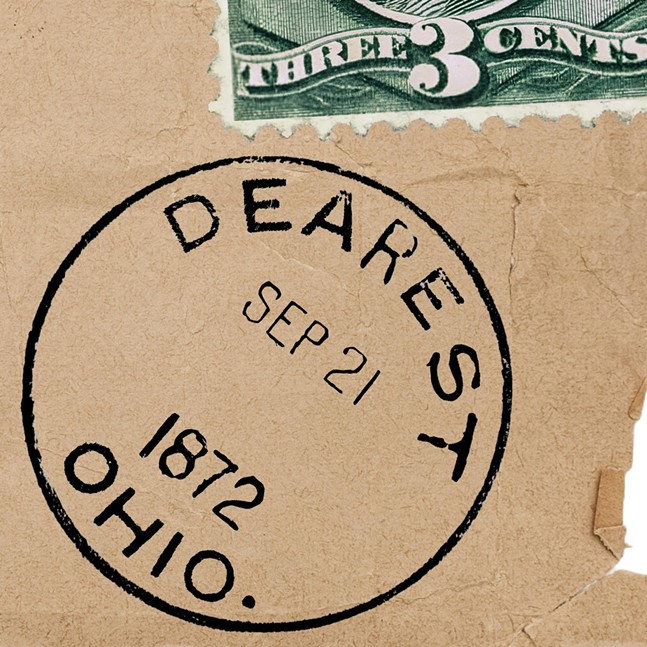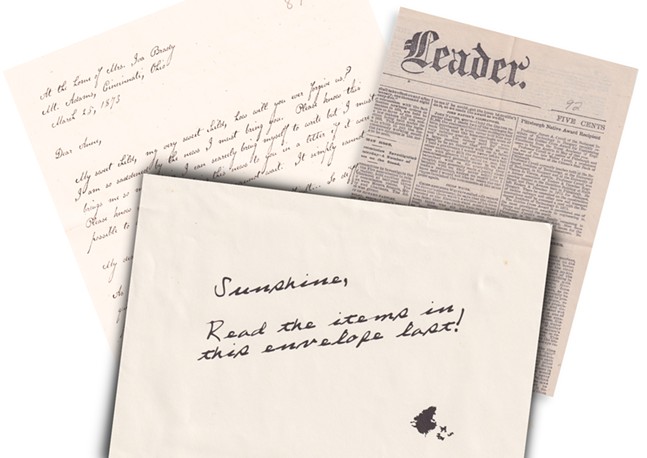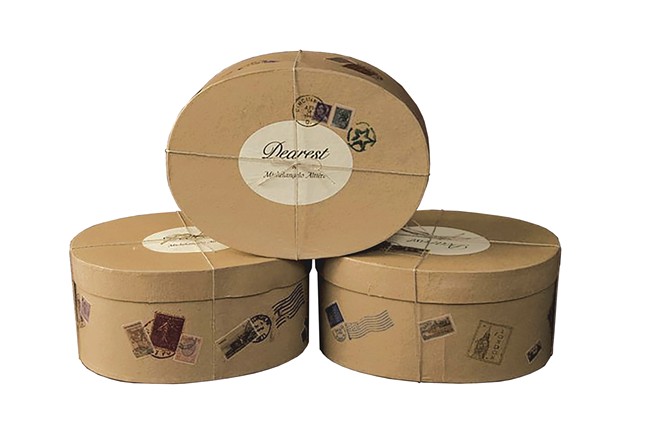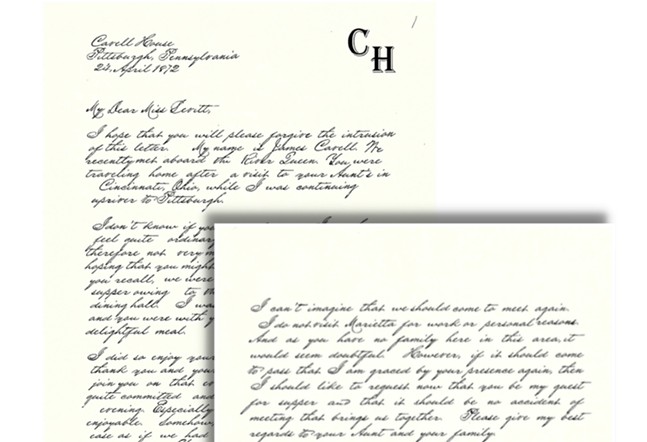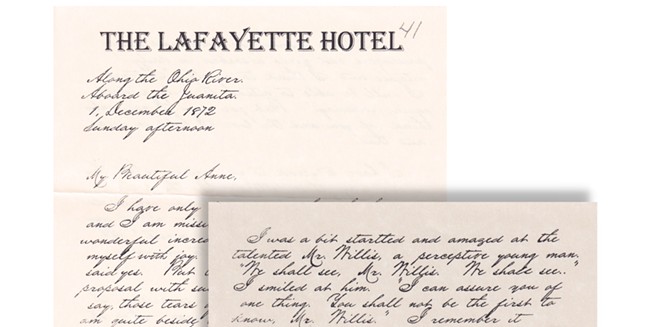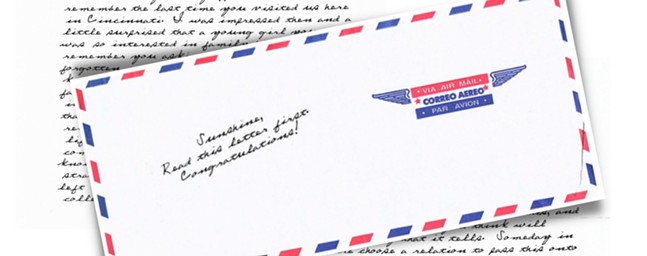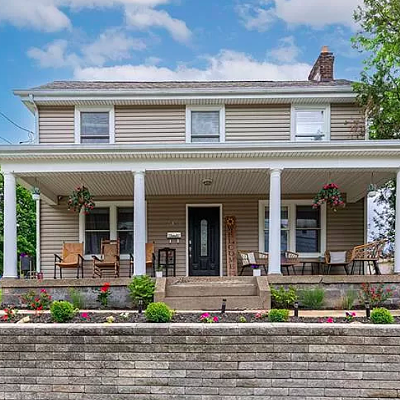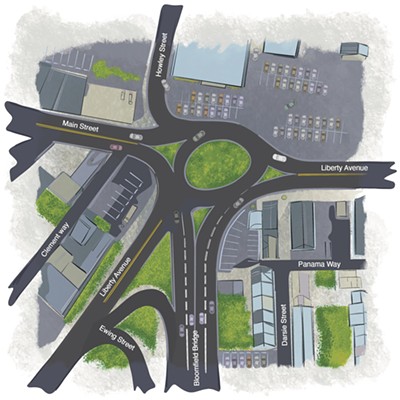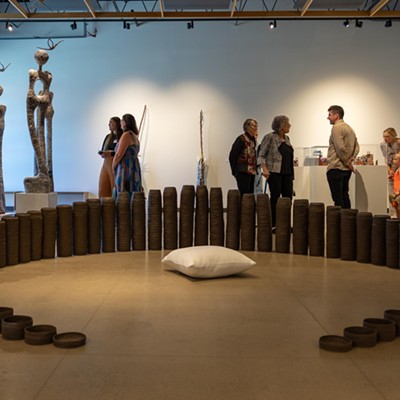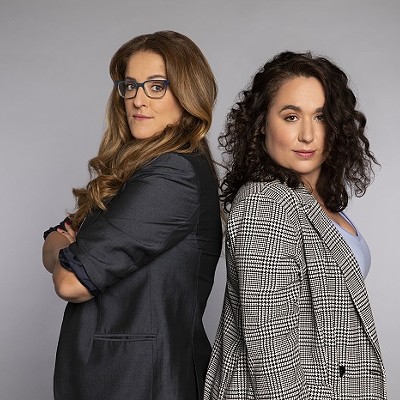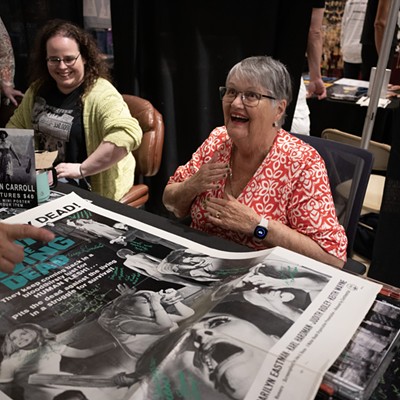The first episode of the Dearest podcast series, set in the 1870s, opens with string music and the scratching of a fountain pen. To the modern ear, it might not be immediately clear what the latter noise is — part of the historical quality its creators intended.
“At some point, you begin to recognize and understand what that sound is,” Michael London tells Pittsburgh City Paper. The series’ audio producer George Drake Jr. created the effect by recording his wife Ruth actually writing a Dearest character’s name with a fountain pen.
“And then [it] becomes real to you … You begin to connect the sound with writing. All of a sudden, you now have knowledge that you would never have had before to really connect to that timeframe,” London says.
A collaboration between Drake and London, an Ohio-based author and playwright, Dearest aims to transport listeners to Reconstruction era life along the Ohio River. First released last month, the new epistolatory podcast series unfolds across an exchange of letters between a Marietta, Ohio milliner and a Pittsburgh engineer who meet aboard a steamboat (alongside around a dozen secondary characters). Inviting listeners to “follow the breadcrumbs,” the series’ trailer promises “a tale of joy, passion, unease, and suspense echoing through the chambers of time.”
Though Dearest is fictional, it incorporates “many pieces of truth and reality,” says London, including real Pittsburgh landmarks like the engineering firm of John Enders and Samuel Diescher, who designed and built the inclines. The sound design also carries the period-specific elements forward throughout the series — wax sizzles to seal a letter; horse hooves clop on cobblestone — with Drake even going as far as recording the actual horn on the Belle of Cincinnati riverboat.
The first Dearest episode, released April 24, is a letter dated April 24, 1872, with the series’ release schedule starting out at “[about] a two-week cadence,” Drake tells City Paper. London further cautions listeners that sometimes “letters cross each other,” meaning something mentioned in correspondence might not come back up for several episodes because a character hasn’t received that particular letter yet.
The series is slated to contain 100 letters sent over the course of a year.
Dearest is adapted from London’s 2007 “three-dimensional” novel of the same name. However, as London explains, it’s a bit misleading to call the original work a novel — a Dearest press release notes the project is “often thought of as a work of art as much as literature.”
The 2007 Dearest is a physical box containing letters and other artifacts like newspaper clippings, scented and tied with ribbon, creating a “sensory experience” and “whole correspondence” for readers to interact with, London says, “as if you found a bundle of letters in the attic.”
The project arose from London’s interest in experimenting with storytelling.
“I’m sort of a structure freak,” he tells CP. “I feel more like an architect… so I came up with the idea: what [would] happen if [a story] was an epistolary novel, and you didn’t read it in a book? What if you ‘found’ the letters and it was created? It becomes an experience that doesn't depend on just literature to communicate all of the story.”
London drew from his family roots in Ohio and West Virginia to come up with a narrative transpiring along the Ohio River; during research, he became “fascinated” with the 1870s, a booming time when Cincinnati and Pittsburgh were among the fastest-growing cities in the U.S.
Pitching Dearest in the early 2000s, before the era of mystery subscription boxes, wasn’t an easy sell for publishers.
“They didn't understand,” London remembers. “They’d take the letters out and they would just fumble.” Ultimately, the epistolary novel went on to win publishing and book awards.
Adapting the project to audio has been equally as unconventional. London met Drake while taking his podcasting class in 2019, and initially, the class was also confused about Dearest.
“Michael came in[to] class with no idea whatsoever,” Drake remembers with a laugh. “And then [he] was like, I have these letters, and he was explaining it, but we were like, so who wrote these letters?”
“I was just looking at another way to tell a story that could be impactful for the audience,” London explains.
Once he understood the concept, Drake says, “[London]’s the only [student] I've ever approached saying, I want to be a part of this.”
The biggest draw for Drake was the idea of an irregular episode release schedule — a divergence from the industry standard of maintaining a consistent content stream.
“What a break from the norm,” he tells CP. “Podcasting can be very tiring. Because, here’s the new content. Here's new content. Here’s new content … why not have it where you don't know when the next one's coming?” (London and Drake emphasize this makes it especially important for Dearest listeners to sign up for notifications so they know when the “digital postman” has come by.)
Episodes themselves also don’t conform to a usual podcast format in order to preserve what Drake calls “the mystique of the letters.”
“There's no intro, there's no outro, there’s no credits,” Drake says. Instead, his favorite part of production is “to play around with the sounds … and hint at foreshadowed moments” in the letters.
“The bigger danger might be falling in love with the guy,” London says.

